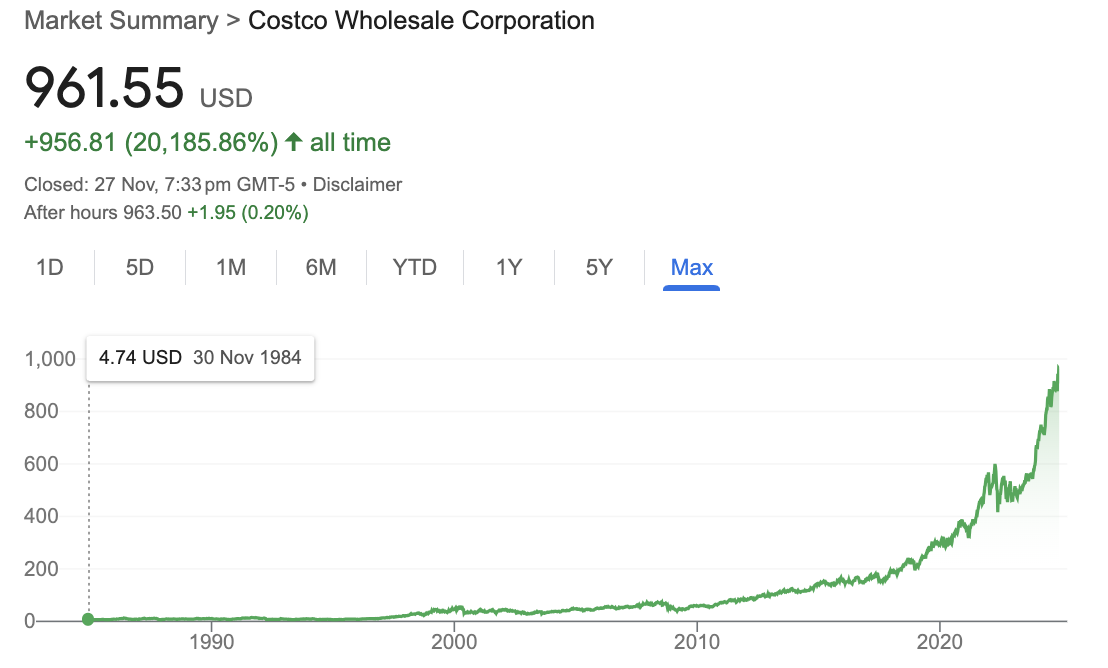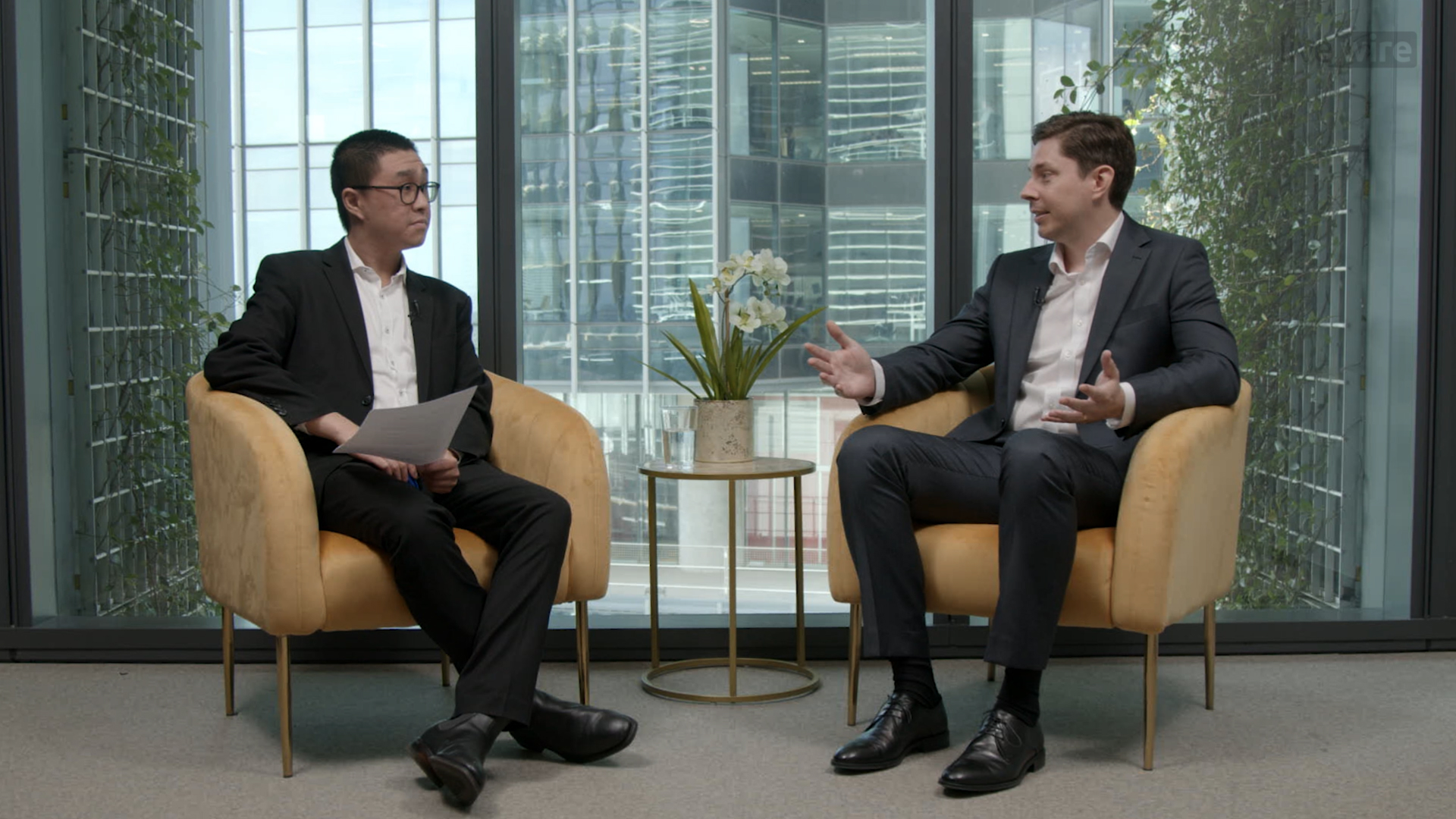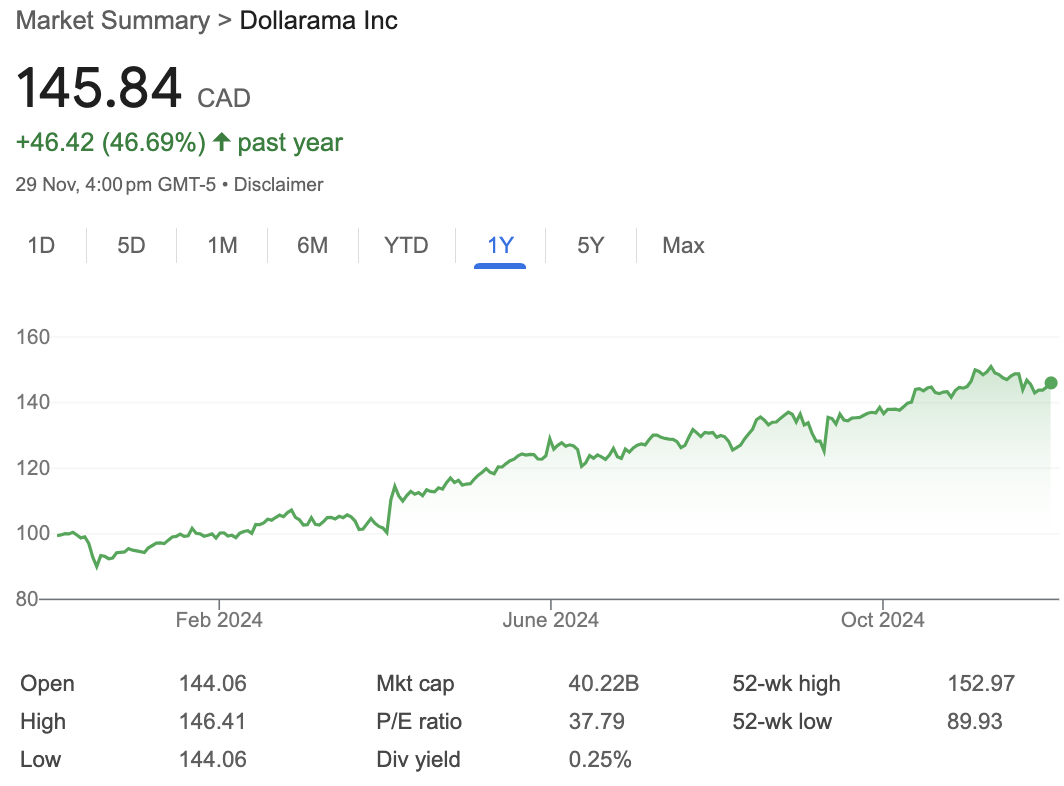The Canadian retailer that may become the next Costco or Walmart
Note: This interview was taped on Wednesday 27 November 2024.
We've all heard of Costco (NASDAQ: COST) - the American big box retailer that makes even Australia's largest Coles and Woolworths stores look like a bar of Twinkies. But one of the reasons Costco is so well-known is that it's been around for a long time. Costco was founded in the US in 1983 and has been publicly listed since 1984. In that time, it has returned a lazy 20,000% for shareholders - proof that both quality operators coupled with long-term investing cannot be beaten.

But given Costco shares are going for nearly US$1,000/share, is there a cheaper alternative for investors who want access to a global, high-quality retailer but don't have the guts to cough up a 58x trailing P/E ratio?
Well, it turns out, there may just be one such example. It's not exactly the same as Costco but its laser focus is on delivering fantastic value for customers, maximising operational efficiency, and its dominance in its homeland of Canada makes it quite the opportunity.
In this episode of The Pitch, Jack McManus of Canopy Investors introduces you to the company that could become the next Costco - Dollarama (TSE: DOL).
Neat, eh? (Sorry, I couldn't not throw in the Canadian-ism.)

EDITED TRANSCRIPT
Costco's share price has soared more than 20,000% since listing in 1984. Have you found another retailer that could track this same rise over the long run?
McManus: Costco is one of the all-time great retailers and one of the all-time great businesses. But we're excited about Dollarama. It's a large position in our fund, but it's important to know that they're following a different path to success.

So as you said, Costco is a destination shop. They have these huge warehouses. You need a membership card just to get in the door, and then when you get there, you're going to go and you're going to stock up. You're going to get 48 rolls of toilet paper, you're going to get a flat-screen TV and a slice of pizza all at a bargain price.
But Dollarama is more of a convenience shop. These are smaller stores and are more accessible. 85% of the Canadian population lives within 10 kilometres of a Dollarama store. And when you go there, you might buy two rolls of toilet paper and a bunch of household essentials, all priced at $5 or less. They are different business models but there are some core key strengths that we think make them both pretty special.
Firstly, they're both obsessed with delivering value to the customers. Costco does this by leveraging a huge buying power across a limited selection of items and it passes their savings onto the customers. Dollarama does it by sourcing most of its products directly from suppliers, and it leans very heavily into home brands or private labels. Private label represents about 70% of their sales versus the 30% they might see at Woolworths or Coles. That allows them to offer prices well below their competitors and even Walmart.
Secondly, they're both exceptional operators, so Costco is famous for relentlessly optimising every part of its operations and Dollarama, they're also very lean and very disciplined. They've delivered very consistently over the last decade.
And thirdly, they both have really strong brands. So you might not have heard of Dollarama, but they're actually the highest-rated retail brand in Canada. And their value proposition is really about a mix of convenience and value.
Dollarama approached The Reject Shop (ASX: TRS) in 2023. What happened there?
Do you mind that management is so hush-hush about some of their future plans? We hear a lot from investors who say they want more communication from management teams.
McManus: Yeah, it's a double-edged sword. If you've ever listened to one of their own earnings calls, they keep their answers short and sweet. And so sometimes as an investor, you want more information, but we also understand they've got a secret sauce that they're trying to keep as a competitive advantage. So I think it's good that they are quite discreet.
Do you think there are other M&A opportunities on the horizon for Dollarama?
McManus: There are some interesting opportunities out there and they have a rock-solid balance sheet. So they have the financial capacity to do things if they want to, but their track record suggests they're going to be super selective.
What they've done with Dollar City and Latin America is a good example of what they might do. So, that started as a commercial agreement in 2013. They didn't own any of the company but they worked alongside the company. They got to know the markets, and it took them six years to pull the trigger and buy just over half of that company in 2019. That's been a success and they've since increased their equity holding in that business to 60% just this year. So that's the sort of thing we'd like to see - a very measured approach, very selective, and very disciplined.
Are there any risks?
McManus: There are probably three risks that we are focused on.
The first risk is really around price increases and the value perception of the brand. Over time, the company has introduced higher-priced products into its offering. A decade ago, the highest-priced product in-store might've been $2. It's then been $3, $4, and today, we're at $5. That's been a good thing because it's allowed them to introduce new products into their offering, which has broadened the appeal of the brand to a larger consumer base. It's also driven growth. We think they're going to continue to do that, so we might see a $6 or $7 top price introduced. But they just have to be careful not to go too fast and disrupt the value proposition.
Secondly, on competition, retail is a competitive space. There's always the risk that someone tries to copy their model or makes it more expensive to roll out stores if they're bidding up real estate. But they have a pretty good head start here. Their store base is six times larger than the nearest competitor.
And then finally, just again with retailers, execution risk is always there. So this is just about making sure they're covering the basics. The right stock is in the right place at the right time, the shelves are full and they maintain their relationships with suppliers. But again, we're pretty relaxed about that. It's a very hands-on management team. We're told the CEO is in stores three days a week just visiting and making sure that everything's in order. So they're the risks, but we're pretty comfortable that the company is on top of them.
Investing in smaller companies for bigger opportunities
Canopy Investors is a boutique global small and mid-cap equities manager investing in high quality companies trading at attractive prices. It aims to grow and shelter investors’ wealth over the long term.
2 stocks mentioned
1 contributor mentioned


